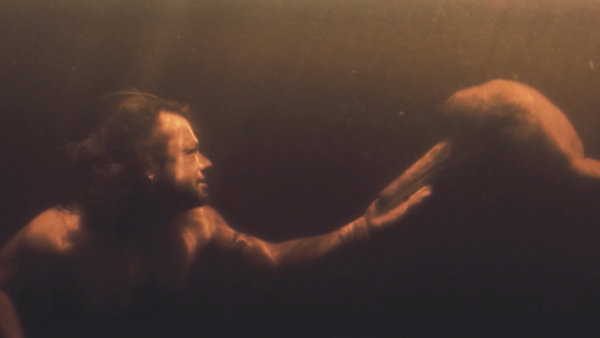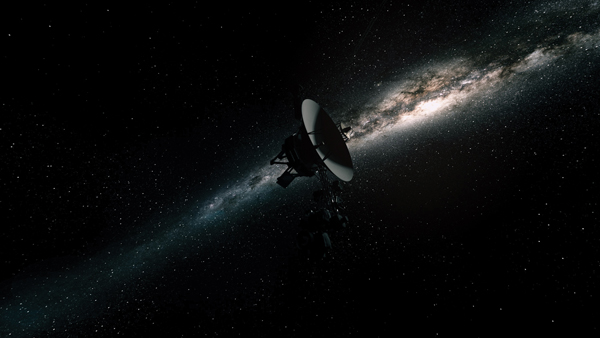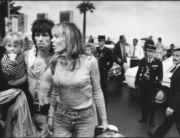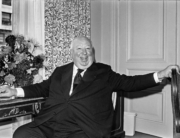Pink river dolphins, space exploration, and Gilbert Gottfried are among the subjects of these Tribeca Film Festival quick takes.
A River Below starts off as a common, somewhat run-of-the-mill documentary about an endangered species and those who attempt to protect it. In this case, the species is the pink river dolphin and their protectors are an introverted field biologist Fernando Trujillo and super-popular Brazilian nature show host Richard Rasmussen. The dolphins are lovely, and both men lament the killing of them as bait to catch a scavenger fish, a staple of the local fishing industry. One decides to do something about it, and that action moves the film in a far more unusual direction.
It becomes a study of different types of activism and what moral lines can be erased and redrawn. Rasmussen is the definitive star. Ponytailed, gregarious, passionate, and pompous, he is a fascinating figure of ego and self-delusion. He truly cares about the Amazon and the environment, but he’s also a showman that knows how to deliver good TV or a good sound bite, as the case may be. And when he gets caught in a bind, one eye moves inward to nurse his ego, the other outward toward the camera eye to register what will titillate. He is practically a Shakespearean character in his emotional makeup, and he is what makes A River Below worth seeing.
The Farthest is the tonic we need for these unscientific times, an unabashed celebration of the ingenuity and inquisitiveness of scientists and engineers. It’s specifically about the creation and launch of the Voyager 1 and 2 spacecrafts and the tremendous information they gave us about the outer planets, revelations we take for granted 40 years later after they first launched. Director Emer Reynolds has assembled most of the team involved in the mission, and they turn out to be what most scientists actually are, not dry and factual but inquisitive, funny, emotional, and, you know, human. She surrounds the talking heads with photos from space and an array of images, concrete and abstract, mystical and every day, to concoct a story that encompasses the universe and yet is distinctly human. As one scientist states: “When children are asking us ‘why,’ what they are really asking is ‘How.’” The Farthest shows you how.
One would expect a documentary about Gilbert Gottfried to be funny, and Gilbert is, as well as poignant and deeply moving. It is a portrait of an excruciatingly shy introvert finding a calling and a marriage of opposites that works because, as Gilbert’s wife, Dara, says, “We were two puzzle pieces that fit each other.” It is also a testament of enduring love and measured exasperation. As one may figure, Gilbert is not easy to live with, but he is an adoring father and a loving husband who writes “Fuck you” in an anniversary card. To paraphrase Jessica Rabbit, he makes her laugh. He’s what, in times past, would be called a mensch—with a filthy, filthy mouth. And if you want to see Gilbert for that, you will not be disappointed, but you will also see how art and love saves, and you will learn you can still curse like a sailor.
Bobbi Jene profiles American dancer Bobbi Jene Smith coming home after 10 years in the celebrated Israeli dance company Batsheva to create her own work. She leaves a younger boyfriend and name recognition behind to find herself and her art. And when the camera focuses on that art and her creative process and her enthusiasm for dance, the film soars. Unfortunately, when it dives into her personal life, it dies on the vine, though ironically, her personal life feeds the art that is so fascinating. One can’t blame Bobbi Jene for that. She is a well-adjusted, talented young woman. So, eyes fall squarely on the filmmaking. The personal moments seem preplanned and contrived, though I’m sure they weren’t. And director Elvira Lind doesn’t really get Bobbi Jene to open up emotionally off stage. Like most artists, Bobbi Jene expresses herself through her work, which is compelling and powerful in a way the rest of this film isn’t.









Leave A Comment